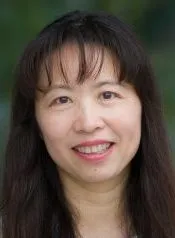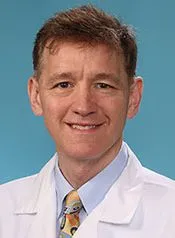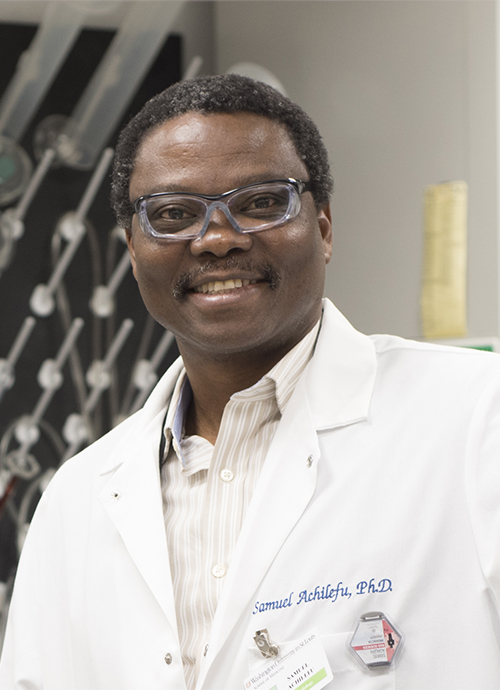Washington University Human Tumor Atlas Research Center

Principal Investigators
Li Ding, PhD
 Dr. Li Ding’s current research focuses on the discovery of genetic changes (somatic and germline) contributing to human diseases by integrating various data types, including DNA, RNA, and proteomics data. Her research team has developed a collection of widely-used computational tools, including VarScan, SomaticSniper, SciClone, BreakDancer, BreakFusion, MSIsensor, Pindel-C, GenomeVIP, HotSpot3D, PathScan, and MuSiC. Dr. Ding plays significant roles in The Cancer Genome Atlas (TCGA), the International Cancer Genome Consortium (ICGC), and the Clinical Proteomic Tumor Analysis Consortium (CPTAC). She co-chairs the TCGA PanCanAtlas Oncogenic Process Group, the TCGA Sarcoma Analysis Working Group, and the ICGC Mutation Calling Group. Dr. Ding also serves on the Steering Committees of the Genomic Data Commons (GDC), CPTAC, and TCGA. Dr. Ding has successfully led many large-scale, multi-institute studies on the genomics of lung adenocarcinomas, AML, and breast cancer. Building on this foundation, her team has produced a series of seminal publications in the fields of cancer genomics research and cancer biology.
Dr. Li Ding’s current research focuses on the discovery of genetic changes (somatic and germline) contributing to human diseases by integrating various data types, including DNA, RNA, and proteomics data. Her research team has developed a collection of widely-used computational tools, including VarScan, SomaticSniper, SciClone, BreakDancer, BreakFusion, MSIsensor, Pindel-C, GenomeVIP, HotSpot3D, PathScan, and MuSiC. Dr. Ding plays significant roles in The Cancer Genome Atlas (TCGA), the International Cancer Genome Consortium (ICGC), and the Clinical Proteomic Tumor Analysis Consortium (CPTAC). She co-chairs the TCGA PanCanAtlas Oncogenic Process Group, the TCGA Sarcoma Analysis Working Group, and the ICGC Mutation Calling Group. Dr. Ding also serves on the Steering Committees of the Genomic Data Commons (GDC), CPTAC, and TCGA. Dr. Ding has successfully led many large-scale, multi-institute studies on the genomics of lung adenocarcinomas, AML, and breast cancer. Building on this foundation, her team has produced a series of seminal publications in the fields of cancer genomics research and cancer biology.
Ryan Fields, MD
 Dr. Ryan Fields’ clinical expertise includes pancreatic, liver, bile duct, stomach and small intestine cancer; melanoma and other skin cancers; and sarcoma. His research interests include care of patients with tumors of the pancreas, liver (primary and metastatic), bile ducts, stomach, and small intestine, as well as patients with melanoma and other skin cancers and sarcomas. Dr. Fields’ research focuses on the identification and treatment of patients at high risk for recurrence of their cancer and the use of novel treatment modalities to improve survival.
Dr. Ryan Fields’ clinical expertise includes pancreatic, liver, bile duct, stomach and small intestine cancer; melanoma and other skin cancers; and sarcoma. His research interests include care of patients with tumors of the pancreas, liver (primary and metastatic), bile ducts, stomach, and small intestine, as well as patients with melanoma and other skin cancers and sarcomas. Dr. Fields’ research focuses on the identification and treatment of patients at high risk for recurrence of their cancer and the use of novel treatment modalities to improve survival.
William Gillanders, MD
 Dr. William Gillanders’ clinical expertise includes breast cancer and surgical endocrinology, including minimally invasive endocrine surgery. His research interests include the molecular detection of breast cancer in sentinel lymph nodes, peripheral blood, and bone marrow as well as antigen-specific T cell responses to cancer vaccines.
Dr. William Gillanders’ clinical expertise includes breast cancer and surgical endocrinology, including minimally invasive endocrine surgery. His research interests include the molecular detection of breast cancer in sentinel lymph nodes, peripheral blood, and bone marrow as well as antigen-specific T cell responses to cancer vaccines.
Samuel Achilefu, PhD
 Our research interests are in the design, development, and biochemical evaluation of molecular imaging agents and drugs in cells and living organisms. Through highly multidisciplinary research, we also develop new imaging systems for clinical applications. Our most recent accomplishments include the discovery of a broad spectrum cancer imaging agent, a portable goggle device for image-guided surgery, a depth-independent photo therapeutic platform for treating diseases and a reporter molecular system for reporting kinase activities. The ultimate goal is to validate new research concepts in the lab and translate them to humans.
Our research interests are in the design, development, and biochemical evaluation of molecular imaging agents and drugs in cells and living organisms. Through highly multidisciplinary research, we also develop new imaging systems for clinical applications. Our most recent accomplishments include the discovery of a broad spectrum cancer imaging agent, a portable goggle device for image-guided surgery, a depth-independent photo therapeutic platform for treating diseases and a reporter molecular system for reporting kinase activities. The ultimate goal is to validate new research concepts in the lab and translate them to humans.